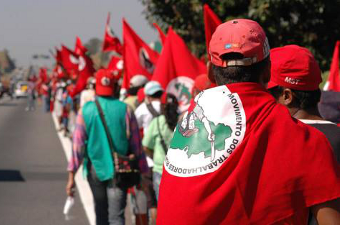New Humanities Lab Takes On the World's Largest Unknown Country, Brazil

Brazil is an increasingly important player on the world stage. Its profile at Duke is rising as well. A Humanities Lab launched this semester, Global Brazil: Culture, Nature, Politics, joins a new major in Brazilian and Portuguese Studies and the Duke Brazil Initiative.
Funded by Humanities Writ Large and hosted by the Franklin Humanities Institute, Humanities Labs bring diverse disciplines together with a common theme. Global Brazil is the fifth lab to be established. Its co-directors are Paul Baker, Earth and Ocean Sciences; John French, History and African and African American Studies; and Esther Gabara, Romance Studies and Art, Art History & Visual Studies.
Brazil is the fifth largest country in the world. Its population and culture are a dynamic hybrid of African, European, and indigenous elements. The country has stunning ecosystems, rich natural resources, and massive urban centers. It hosted the 2014 World Cup, which made it the focus of a steady stream of news stories, for better or worse.
The co-directors described their approach for a recent Duke Chronicle story. French noted that the country’s recent evolution made it an especially rewarding study.
"Brazil is unquestionably the world's largest unknown country," he stated. "However, I'm amazed at how much Brazil has changed. I would say it is an entirely different place than it was three decades ago."
According to Gabara, the project is international as well as interdisciplinary, "looking at Brazil not just as an individual country, but within the broader context of its place in the world."
"I think of Brazil comparatively. These big countries like Brazil and Argentina are typically studied by themselves, and I think we're missing a lot when we do that," Gabara noted. "We're not just interested in Brazil within its borders, but also the networks that connect Brazil."
The Lab’s featured courses in Fall 2014 include “Global Brazil” and “Capoeira: Culture and Practice.” Students will also have the opportunity to participate in faculty-led research projects focused on art and popular culture (with the goal of planning a public exhibit on Pop Art in Brazil and the Americas); biodiversity, energy, and human development in the Amazon; and political inequalities and democratic social movements.
Referenced People
|
Professor of Earth and Ocean Sciences, Co-Director, Global Brazil Lab
|
Professor of History , Co-Director, Global Brazil Lab
|
E. Blake Byrne Associate Professor of Romance Studies, Co-Director, Global Brazil Lab
|




